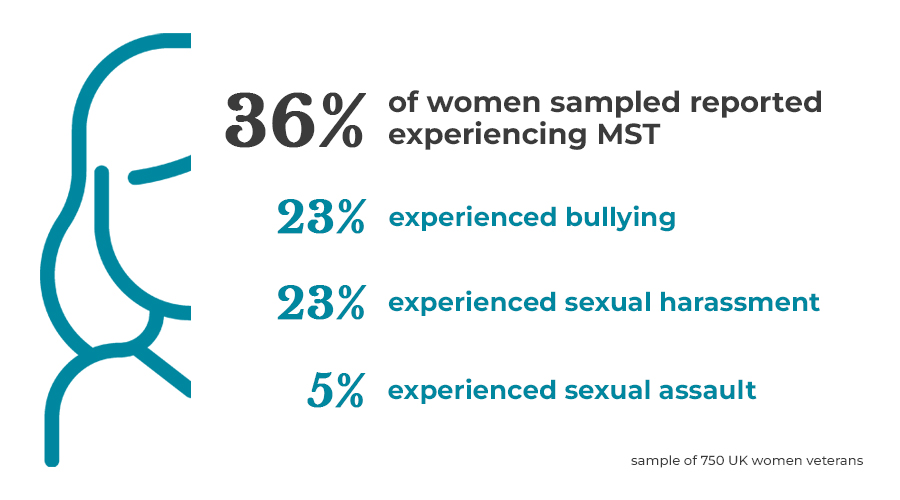
Sexual harassment and assault that takes place during service and is perpetrated by other service personnel is of particular relevance for women veterans. These are commonly referred to in literature and research using the umbrella term ‘military sexual trauma’ or MST. Harassment can also typically include bullying and discriminatory comments or behaviours based on gender.
MST can take place in any military-related environment or context such as on deployment, on military bases, and during social events, whether on or outside of military bases. MST can happen both during and off-duty.
MST is not an officially recognised term in the UK and is not a medical diagnosis. It describes a continuum of experiences that research suggests share common features and potential health consequences.
There is currently no official estimate of the prevalence of instances of MST amongst UK veterans. A study of 750 UK women veterans from the Women’s Royal Army Corps (WRAC) Association, found that approximately 36% reported MST. 23% reported being harassed, 23% reported having been bullied, and 5% reported being sexually assaulted during their service. Such figures may not be representative of the whole UK women veteran population, who have served across different time periods.
Although MST can affect any service member, women are disproportionately the targets and can be up to ten times more likely to experience MST compared to men. This pattern and gender difference has been found across militaries in different countries. For example, an analysis of American studies of serving and veteran women estimated around 52% had been harassed and almost 24% sexually assaulted during military service by fellow service personnel. In comparison, for men the proportions were 9% and 2% respectively. Most recent data from the Ministry of Defence shows 13% of women and 1% of men serving in the regular UK armed forces report being subject to sexual harassment in the past year.
(SOURCES: Herriott, Campbell et al.; Wilson, 2018; Hendrikx et al., 2021; Defence Select Committee: Atherton Report, 2021; Moreau et al., 2021; Mota et al., 2022; Poole, 2021)
